Introduction: Navigating the Adderall Shortage with Safer, Legal Alternatives
The nationwide Adderall shortage has sparked a surge of interest among patients, healthcare providers, and researchers in finding effective and safe substitutes. For adults managing ADHD, narcolepsy, and related cognitive challenges, the shortage has created both practical hardships and new opportunities to explore alternatives that support mental clarity, energy, and decision-making without the risk of dependency. Whether you’re searching for a substitute for Adderall during the shortage or simply seeking new cognitive strategies, understanding your options is critical. Fortunately, the landscape of legal nootropics, cognitive enhancers for ADHD, and narcolepsy medications has evolved considerably, offering evidence-based solutions. In this guide, we will delve deeply into the best Adderall alternatives for adults, examining drugs similar to Adderall, what to take if you run out of Adderall, and the newest and safest options for optimizing brain function during this uncertain time.
You may also like: How to Choose the Best Brain Supplements for Adults: Science-Backed Ingredients That Support Focus, Memory, and Mental Clarity
Understanding the Adderall Shortage: Causes and Consequences
To fully appreciate the significance of seeking alternatives to Adderall during the shortage, it is important to understand why the shortage has occurred. Manufacturing delays, increased demand, and regulatory challenges have all contributed to this crisis. Many pharmaceutical companies struggle with production quotas imposed by the DEA due to Adderall’s classification as a Schedule II controlled substance. As a result, patients who rely on the medication for attention deficit hyperactivity disorder or narcolepsy face challenges filling prescriptions. The need for a substitute for Adderall during shortage scenarios has never been greater, particularly as disruptions in access can lead to academic struggles, workplace difficulties, and decreased quality of life.
Healthcare providers emphasize that finding adderall alternatives should be a proactive process rather than a reactive scramble. For many adults, the shortage has prompted a reassessment of treatment strategies. There is growing interest in drugs similar to Adderall but with different mechanisms of action or lower abuse potential. Additionally, public awareness of alternatives to Adderall during shortage periods has helped destigmatize discussions about cognitive enhancement, focusing attention on legal nootropics and other safer interventions.
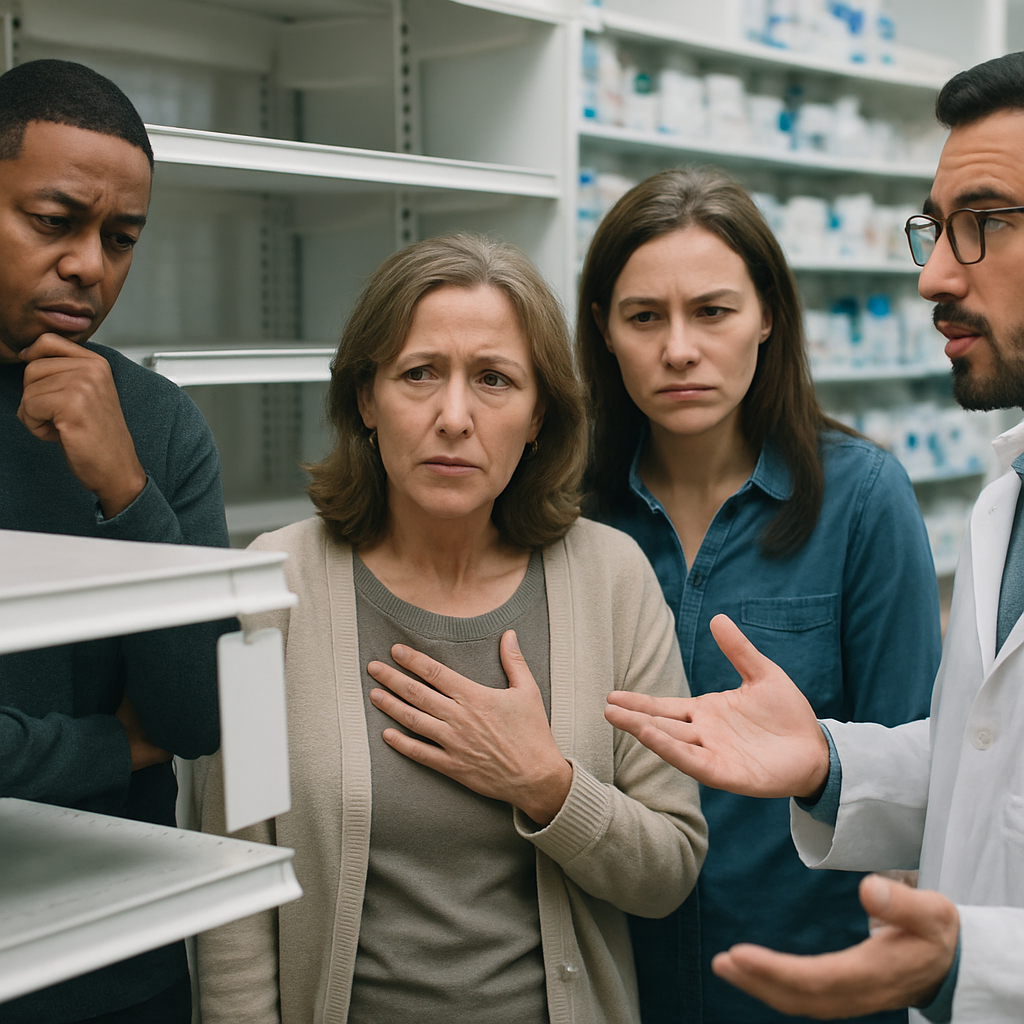
Exploring Prescription Alternatives: Safer Medications Like Adderall
When considering prescription-based substitutes, it is important to distinguish between medications that share Adderall’s stimulant profile and those that work through different pathways. Vyvanse, for instance, is a popular prescription medication often recommended as an adderall alternative for adults. Though chemically related to Adderall, Vyvanse has a unique activation mechanism that may reduce the likelihood of misuse. Similarly, Evekeo, containing pure amphetamine sulfate, serves as a viable option for individuals seeking a medicine like Adderall but requiring dosage flexibility.
Non-stimulant medications also play a significant role among adderall shortage alternatives. Atomoxetine (Strattera) is a norepinephrine reuptake inhibitor that provides symptom control without the stimulant-related risks. Guanfacine (Intuniv) and Clonidine (Kapvay), originally developed for hypertension, have shown efficacy in treating ADHD symptoms by regulating brain circuits related to attention and impulse control. These medications exemplify the concept that drugs similar to Adderall do not necessarily have to be stimulants to be effective. Understanding what to take if you run out of Adderall involves consultation with a knowledgeable provider who can tailor therapies based on your symptom profile, lifestyle, and long-term goals.
Nootropics as Emerging Adderall Alternatives for Adults
Beyond traditional pharmaceuticals, the rise of nootropics has transformed the conversation around cognitive enhancement. Legal nootropics offer adults safer options to boost memory, attention, and decision-making capacity without the same regulatory constraints. Compounds such as L-Theanine, found naturally in green tea, provide calming focus without sedation, making them appealing substitutes for those needing reliable attention support.
Rhodiola Rosea and Bacopa Monnieri, two adaptogenic herbs, have garnered attention for their ability to enhance cognitive resilience under stress—an important feature when considering alternatives to Adderall during shortage periods. Citicoline, a choline donor that enhances acetylcholine production, supports both memory and focus without the crash associated with stimulants. These natural agents embody the ideal of finding a new Adderall alternative that optimizes cognitive function while minimizing risks.
Importantly, when evaluating nootropics as an adderall alternative for adults, consumers must prioritize products that are clinically studied, third-party tested, and transparent about their ingredients. The supplement market is vast, and not all products deliver on their claims. Thus, informed selection—guided by scientific research and physician oversight—is essential for achieving meaningful benefits safely.
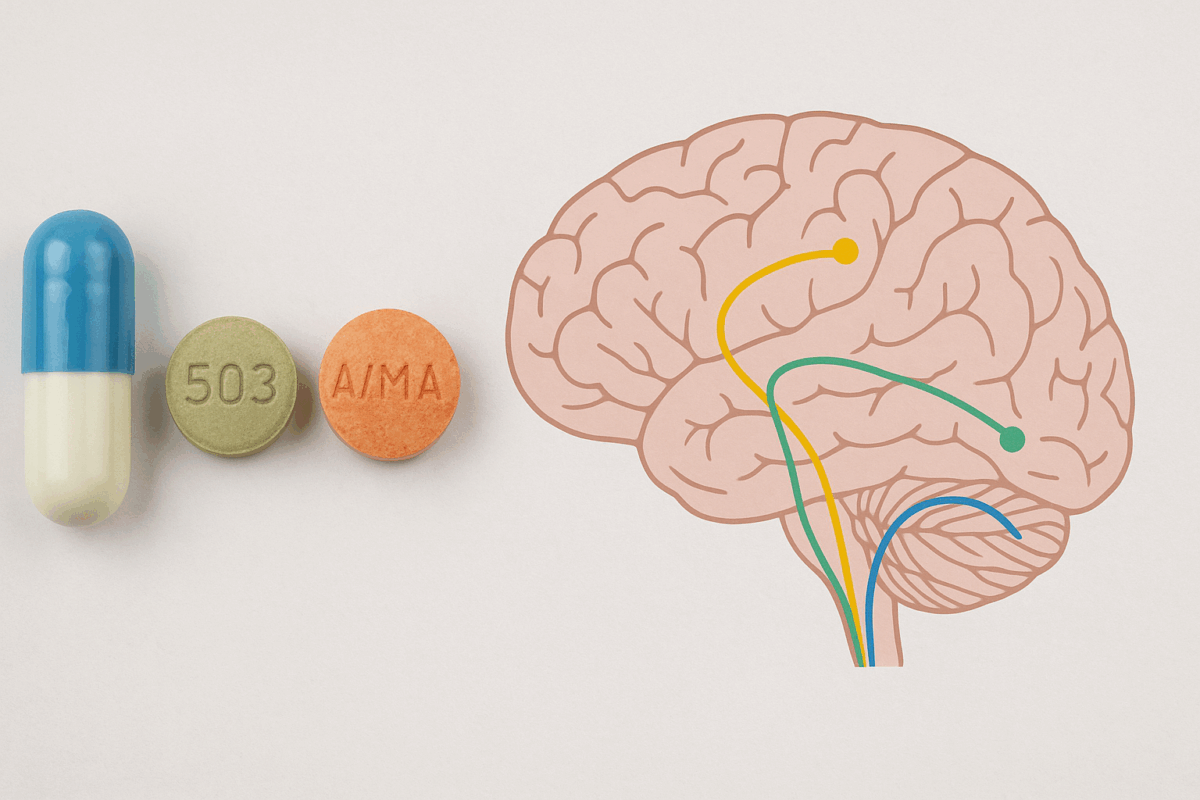
Narcolepsy Medications Offering Cognitive Support Beyond Adderall
Narcolepsy is a debilitating sleep disorder that often requires pharmacological management of daytime sleepiness and cognitive fog. Traditionally, Adderall has been prescribed off-label for narcolepsy, but the current shortage demands alternative strategies. Fortunately, several narcolepsy cognition enhancing medications provide viable options for those seeking drugs similar to Adderall with proven efficacy.
Modafinil (Provigil) and Armodafinil (Nuvigil) are two wakefulness-promoting agents with FDA approval for narcolepsy. Unlike traditional stimulants, these agents enhance alertness by modulating neurotransmitters like dopamine and orexin without significantly increasing heart rate or blood pressure. As substitutes for Adderall during shortage periods, they present a compelling balance of effectiveness and safety.
Pitolisant (Wakix), a newer medication approved for narcolepsy, represents an exciting frontier in cognitive enhancement. It acts as a histamine H3 receptor inverse agonist, promoting wakefulness and cognitive function without the addictive potential seen in amphetamines. Understanding what to take if you run out of Adderall requires a thorough review of your symptoms and needs, and for many, narcolepsy medications offer untapped potential for sustaining productivity and mental acuity.
Key Considerations When Choosing an Adderall Alternative
Selecting the right substitute for Adderall during shortage periods involves multiple factors beyond efficacy. Safety profile, individual tolerance, duration of action, and impact on sleep must all be carefully weighed. Some adderall alternatives for adults may provide robust cognitive stimulation but can exacerbate insomnia if not timed appropriately. Others may offer steady attention support but lack the “kick” that users associate with Adderall’s immediate effects.
Another crucial consideration is potential interactions with existing medications or underlying health conditions. For instance, individuals with anxiety disorders may find that certain stimulant-based adderall alternatives worsen their symptoms, making non-stimulant or adaptogenic options more appropriate. The goal is not merely to find drugs similar to Adderall but to identify interventions that align holistically with your health profile.
Financial accessibility is also important. Some adderall shortage alternatives, particularly brand-name nootropics or newer narcolepsy medications, can be expensive without insurance coverage. Exploring generic options, online pharmacies with transparent sourcing, or compounded prescriptions may help mitigate cost barriers while maintaining quality care.
The Role of Lifestyle Interventions Alongside Cognitive Enhancers
While pharmacological solutions play a vital role in managing cognitive symptoms, lifestyle modifications can substantially amplify their benefits. Adequate sleep, regular physical activity, balanced nutrition, and mindfulness practices are foundational pillars of cognitive health. Adults seeking a substitute for Adderall during shortage periods should view nootropics and medications not as stand-alone solutions but as components of an integrated strategy.
For example, studies show that aerobic exercise increases brain-derived neurotrophic factor (BDNF), a protein that enhances learning and memory. Dietary choices rich in omega-3 fatty acids, antioxidants, and complex carbohydrates stabilize blood sugar levels and promote neurotransmitter balance. Mindfulness meditation and cognitive behavioral techniques improve emotional regulation and focus, complementing the effects of pharmacological interventions. In this way, the search for the best adderall alternatives becomes an opportunity for holistic self-optimization rather than mere symptom management.
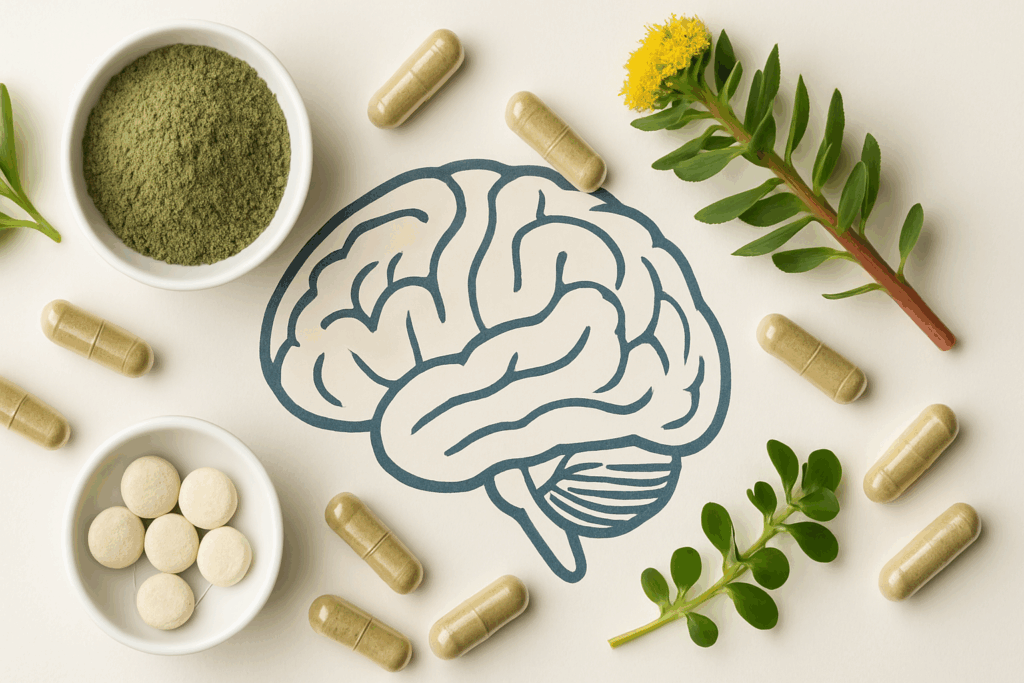
Emerging Trends and the Future of Cognitive Enhancement
The future of adderall alternatives for adults is bright, fueled by rapid advancements in neuroscience, pharmacology, and personalized medicine. Researchers are exploring novel compounds that target cognitive pathways with unprecedented precision and minimal side effects. Innovative delivery methods, such as transdermal patches and microdosed formulations, promise to revolutionize how cognitive enhancers are administered.
The conversation around brain doping drugs is also evolving, with increasing emphasis on ethical considerations, long-term safety, and accessibility. Public interest in understanding are nootropics legal regulations is driving clearer guidelines and greater consumer protection. Meanwhile, patient-centered care models encourage shared decision-making between individuals and healthcare providers, empowering users to navigate alternatives to Adderall during shortage scenarios with confidence and clarity.
Another trend gaining traction is the integration of digital tools with pharmacological treatments. Cognitive training apps, neurofeedback devices, and wearable monitors allow for real-time tracking of cognitive performance, creating dynamic feedback loops that personalize treatment plans. As our understanding of cognition deepens, the line between therapy and enhancement continues to blur, offering exciting possibilities for those seeking sustainable solutions for attention and decision-making optimization.
Frequently Asked Questions (FAQ): Exploring Alternatives to Adderall During Shortages
1. What should you consider when choosing a substitute for Adderall during a shortage?
When selecting a substitute for Adderall during shortage periods, it’s crucial to prioritize individualized care. Different medications, like dexmethylphenidate or lisdexamfetamine, may mimic Adderall’s therapeutic effects but have varied pharmacokinetics. Consulting a specialist to assess metabolic rates, co-existing conditions, and lifestyle factors helps avoid trial-and-error missteps. Emerging evidence also supports behavioral therapies paired with medicine like Adderall substitutes, creating a synergistic improvement in focus and impulse control. Tailoring solutions to your neurochemical profile ensures that substitutes are not just stopgaps but sustainable alternatives to Adderall during shortage challenges.
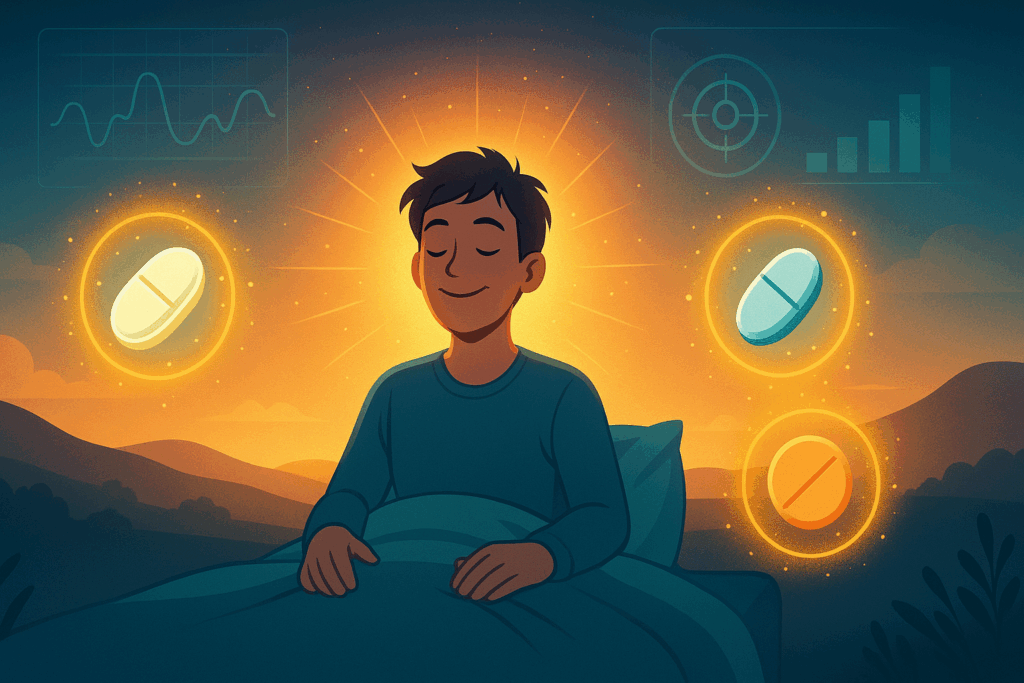
2. Are there any new Adderall alternatives that show promise for adults managing ADHD?
Yes, pharmaceutical innovation continues to unveil new Adderall alternative options. Recently, viloxazine ER (brand name Qelbree) has emerged as a non-stimulant that shows effectiveness without the high abuse potential of traditional drugs similar to Adderall. Research indicates that viloxazine may modulate serotonin and norepinephrine levels, offering a broader cognitive regulation spectrum. Adults particularly benefit from reduced anxiety alongside improved attention span. This trend toward non-stimulant options represents a shift from merely mimicking Adderall to enhancing emotional resilience and decision-making capabilities—key for long-term success.
3. How do lifestyle interventions complement Adderall shortage alternatives?
Incorporating lifestyle changes can substantially enhance the effectiveness of any Adderall shortage alternatives. Structured exercise routines, particularly aerobic activities, have been shown to naturally increase dopamine levels—providing a cognitive boost similar to that of medicine like Adderall. Dietary adjustments, especially omega-3 supplementation and low-glycemic meals, also sustain mental energy and focus. Mindfulness practices, when combined with pharmacological substitutes for Adderall during shortage periods, accelerate neural adaptation and executive functioning. A holistic, habit-focused approach may reduce dependence on any single medication and foster resilience during medication transitions.
4. What are some overlooked natural options for those seeking Adderall alternatives for adults?
Beyond prescription medicines, several natural options have quietly gained traction as Adderall alternatives for adults. For instance, citicoline supplements show potential in enhancing memory and cognitive flexibility by boosting acetylcholine levels. Additionally, rhodiola rosea and bacopa monnieri offer neuroprotective effects that improve stress tolerance and information retention. These alternatives tap into broader health benefits—such as mood regulation and fatigue resistance—that traditional drugs similar to Adderall might not fully address. Exploring natural cognitive enhancers under professional guidance can offer a safer, sustainable solution for long-term focus and energy management.
5. How can you prepare for medication gaps if you anticipate running out of Adderall?
If you’re concerned about what to take if you run out of Adderall, planning ahead is essential. Doctors often recommend bridging the gap with low-dose atomoxetine or clonidine, both of which have distinct but complementary mechanisms. Short-term cognitive-behavioral therapy (CBT) can also act as a buffer, helping individuals maintain productivity and emotional regulation during medication gaps. Additionally, having an “emergency toolkit”—like caffeine pills, mindfulness apps, and scheduling strategies—can ease the transition. Understanding your body’s signals without medication provides valuable self-management skills that even enhance long-term outcomes beyond temporary shortages.
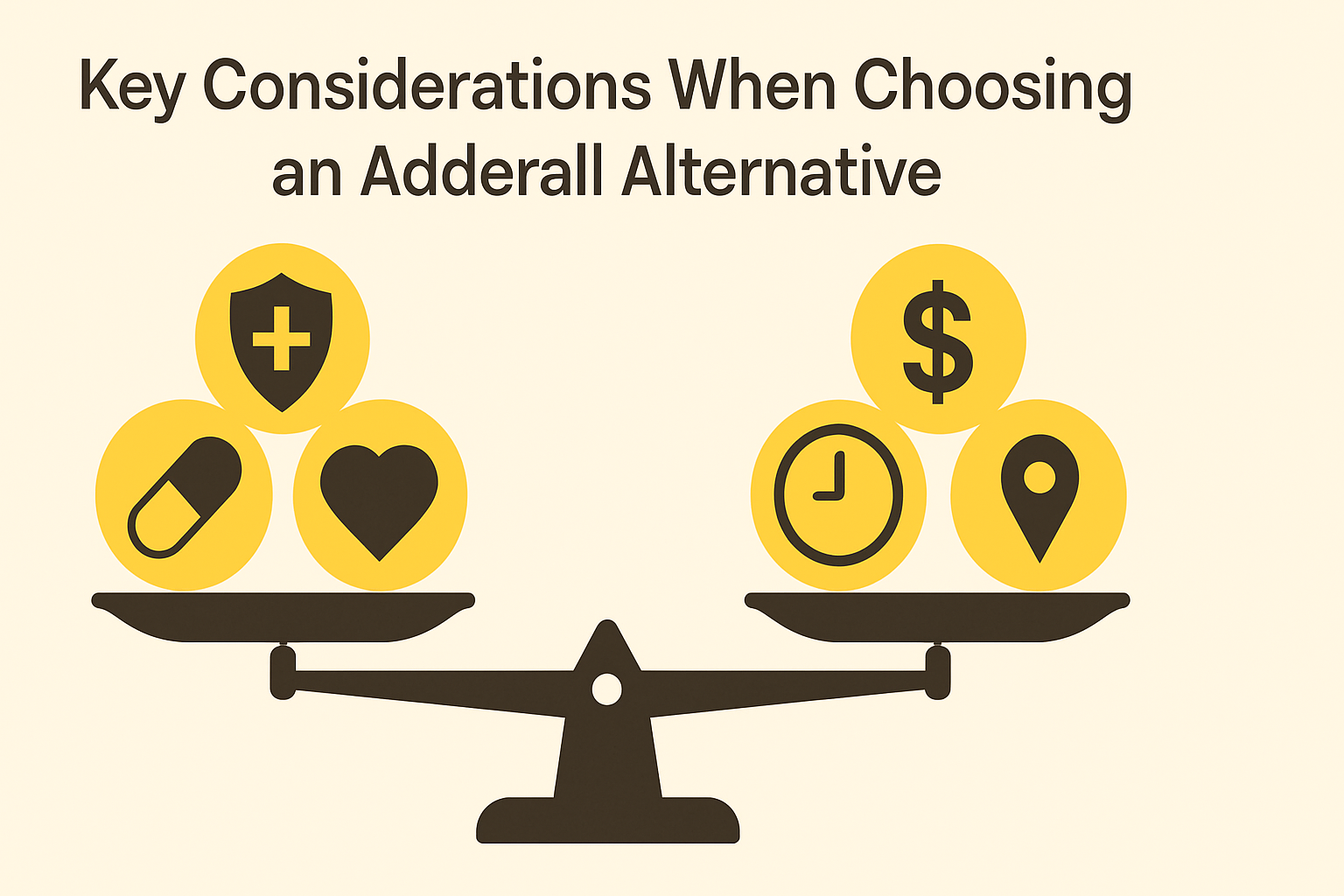
6. Are there cognitive risks associated with rapidly switching to Adderall shortage alternatives?
Yes, abrupt transitions to alternatives to Adderall during shortage events can pose cognitive risks if not managed carefully. A sudden change in dopaminergic stimulation may trigger withdrawal-like symptoms, including brain fog, irritability, and decreased task persistence. It’s vital to implement gradual cross-tapering strategies when moving to a new Adderall alternative to minimize disruptions. Using personalized cognitive exercises, like memory drills or attention training apps, during this period can bolster neuroplasticity and smooth the transition. An experienced healthcare provider can create a phased plan that respects your brain’s adjustment timeline.
7. What social and emotional factors should adults consider when switching to Adderall alternatives?
Switching to Adderall alternatives for adults isn’t just a biochemical adjustment—it’s a psychosocial one too. Some adults report feelings of inadequacy or frustration during the initial stages of adapting to new medications or strategies. Peer support groups, ADHD coaching, or therapy sessions can provide a safe space for expressing these challenges. Strengthening emotional intelligence skills alongside using a substitute for Adderall during shortage times can transform the adjustment phase from a source of stress into an opportunity for personal growth. Resilience-building becomes an integral part of the therapeutic journey.
8. Are there promising innovations on the horizon that could offer a better substitute for Adderall during shortage periods?
Yes, research into precision psychiatry is promising new horizons for Adderall shortage alternatives. Scientists are exploring genetic profiling to customize stimulant and non-stimulant treatments to an individual’s metabolic and neurological signatures. Additionally, novel compounds like SDX (serdexmethylphenidate), a prodrug stimulant with a smoother release profile, are entering the scene as a new Adderall alternative that could reduce side effects like insomnia and appetite suppression. Future therapies may even include neuromodulation devices that regulate brain activity externally, offering non-drug-based interventions for attention and executive function challenges.
9. What are the key differences between drugs similar to Adderall and true Adderall alternatives?
Understanding the distinction between drugs similar to Adderall and true alternatives is critical for informed decision-making. Drugs similar to Adderall, such as Evekeo (amphetamine sulfate), directly stimulate neurotransmitters in ways almost identical to Adderall, offering near-seamless substitutions but maintaining similar risks for dependency and cardiovascular strain. In contrast, true Adderall alternatives—like atomoxetine or guanfacine—modulate neurotransmitter activity differently, emphasizing gradual cognitive regulation over immediate stimulation. Selecting between these categories depends on whether the goal is immediate symptom control or long-term cognitive and emotional development. Working closely with a knowledgeable clinician can help tailor the best strategy for your personal needs.
10. How can long-term planning reduce reliance on medicine like Adderall or its alternatives?
Long-term planning is the unsung hero in reducing dependency on both Adderall and its substitutes. Techniques like goal-setting therapy, skill-building in executive functioning, and cultivating intrinsic motivation can gradually decrease the perceived need for medication. Additionally, participating in structured programs that strengthen working memory and emotional regulation can create brain resilience that outlasts pharmacological support. Preparing contingency plans for times of medicine shortages—and diversifying coping strategies—ensures smoother navigation through future disruptions. A comprehensive, future-focused approach transforms Adderall shortage alternatives from emergency fixes into stepping stones for sustainable cognitive empowerment.

Conclusion: Finding Hope and Focus Amid the Adderall Shortage
Navigating the challenges posed by the Adderall shortage requires both resourcefulness and discernment. Thankfully, a wide array of legal nootropics, cognitive enhancers for ADHD, and narcolepsy medications offer promising alternatives. Whether you are searching for a substitute for Adderall during shortage disruptions, exploring drugs similar to Adderall, or simply seeking what to take if you run out of Adderall, the options are both diverse and expanding.
By understanding the landscape of adderall alternatives for adults, considering the safety profiles of each medicine like Adderall, and embracing complementary lifestyle strategies, individuals can achieve sustained cognitive clarity even in the absence of their usual prescriptions. It is an era where proactive health management, scientific innovation, and personal empowerment converge, creating unprecedented opportunities for cognitive optimization.
As research progresses and awareness grows, finding the best new Adderall alternative will continue to become easier, safer, and more tailored to individual needs. Staying informed, consulting qualified healthcare providers, and approaching nootropic exploration with curiosity and caution will ensure that cognitive health is preserved and enhanced for the long term, regardless of pharmaceutical shortages or market fluctuations.
Further Reading:
22 prescription Adderall alternatives for ADHD symptom relief in 2025


